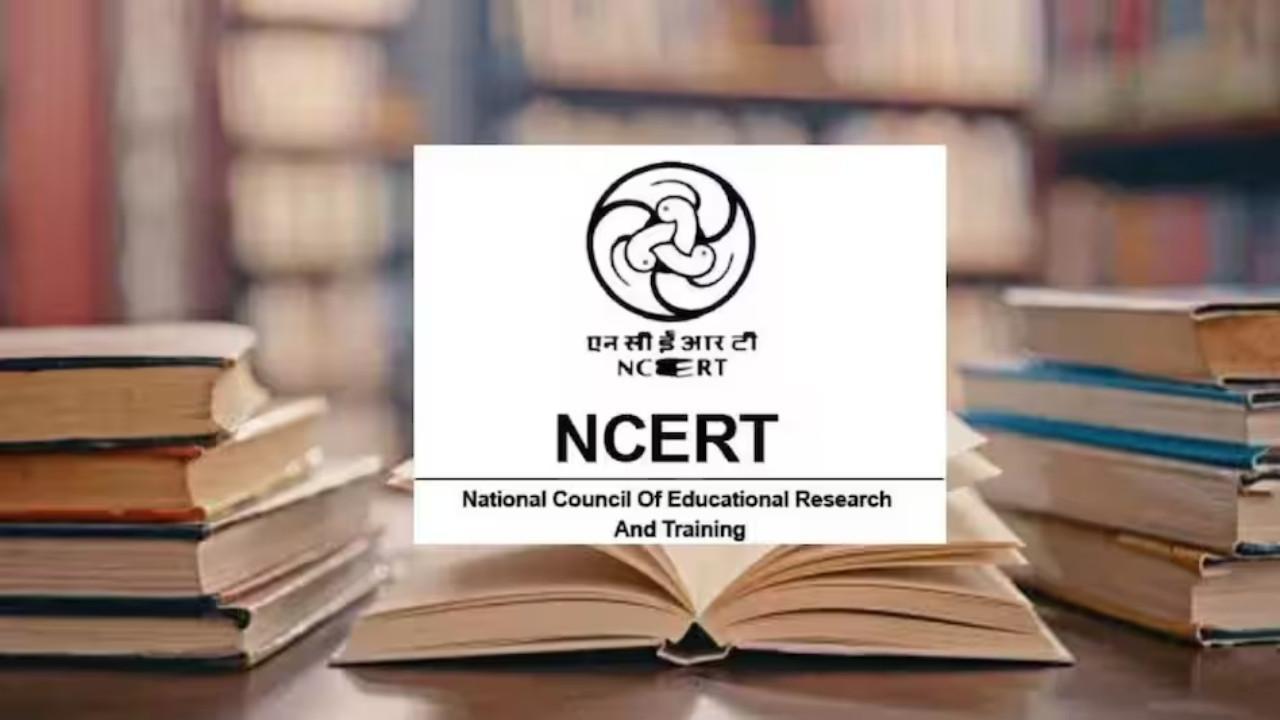You have not yet added any article to your bookmarks!

Join 10k+ people to get notified about new posts, news and tips.
Do not worry we don't spam!

Post by : Anis Farhan
If you’re a high school student, or a parent guiding one, chances are you’ve heard whispers of changes in the CBSE and NCERT world—and those whispers are turning into fact. The syllabus, the exam rules, what counts toward your final marks—all are being reshaped. These changes aren’t random. They are part of a broader effort to make school education less about memorizing and more about understanding, applying, and growing in skills.
For you, this means uncertainty—but also opportunity. It’s time to understand what the new rules are, how they affect what you study, and how to plan so that instead of reacting, you steer your own path confidently.
Several important reforms have come into effect or been announced:
Attendance & Eligibility Rules Are Getting Strict
Students in Classes 10 and 12 are now required to attend at least 75% of school days during the academic year to be eligible to appear in their board exams. Internal assessments, class tests and projects will count significantly. Skipping classes casually is no longer possible without consequences. Schools will mark students “Essential Repeat” or in similar categories if attendance or required internal assessments are not met.
Registration & Identity Verification Tightened
For Classes 9 and 11, registration rules have new layers. Students must register through official portals in a timely manner. There are verification slips, data correction windows, proper subject codes, correct personal details, and mandatory IDs. Schools must ensure everything is submitted correctly—wrong entries may lead to loss of eligibility. Also, candidate data verification is becoming a standard part of the process to reduce errors or mismatches later.
Removal of Additional Subject Option for Private Students
Private candidates (students not enrolled in regular schooling) often took extra or additional subjects to strengthen their profiles or eligibility for entrance exams. That option is being scrapped. This means many students who relied on optional subjects as backup or to boost their chances will need to revise their plans. The change came with little prior communication, which has caused concern among affected students.
Exam Pattern & Evaluation Changes
Class 10 exam pattern is shifting. A large portion of the marks will now come from competency-based questions. These questions test your understanding, reasoning, use of case studies or real-world contexts—not just textbook recall. Some parts of the exam are now more objective (e.g. MCQs) and time management in the exam will matter more because of this shift.
Internal assessments (projects, assignments, class participation, practicals) are becoming an even more important piece of your final evaluation. You can’t rely solely on exam hall performance anymore; what you do in school all year long counts.
For many students, the board exams will increasingly reflect the full curriculum (all topics that are not removed), so preparing over the long haul is essential rather than last-minute cramming.
Electives & Skill Subjects Expanded
Recognizing that not all students want identical paths, the board is introducing more skill-based electives. These may include courses in areas beyond just core academics, such as technology, innovation, applied skills, etc. Students who choose them will need to ensure their school has proper facilities and trained teachers for those subjects, because infrastructure and qualified educators are part of the new eligibility rules.
Free Online Courses via NCERT / SWAYAM
To reduce barriers and help students across geographies, NCERT is offering 24-week online courses for Classes 11 and 12 covering many subjects—Maths, Science, English, Social Sciences, etc. These are structured as modules, authored by experienced faculty, and meant to supplement school learning. Enrollments are time-bound. The courses divide content into digestible bits so students can grasp concepts, clear doubts, and stay on track with board expectations.
Data Verification, APAAR IDs, Students with Special Needs
The process for submitting exam candidature is being made more rigorous. Schools will issue verification slips for students to check names, dates of birth, subject codes. Certain IDs (like APAAR) are becoming mandatory for all candidates in high stakes classes. For students categorized as having special needs, earlier procedural leeway is being replaced with strict deadlines, mandatory documentation, and fixed windows for uploads. Changes after cutoffs may not be accepted.
Curriculum & Syllabus Adjustments
The syllabus for many classes and subjects has been revised. Some topics removed or restructured. For example, in mathematics, subjects are being re-oriented to include more real-life application. Language subjects and arts electives have seen content reordering so that modules build logically. Also, the school curriculum has grouped subjects into electives, internal assessment components, and academic electives to provide some flexibility and enable students to align with their strengths.
To make sense of what all this means in practice, here are specific changes affecting major grades and subjects:
For Class 10: The exam format now allocates a significant portion to competency-based questions. In many subjects, about 40% weight is being given to questions that test ability to apply concepts via case studies, source-based reasoning, or situational problems. The remainder includes objective type questions and long/short answer questions. Internal assessment remains important. Students need to keep up throughout the year, not just in final exam prep.
For Class 12: The pattern of questions is changing in many streams. Skill electives are being offered more meaningfully, not just as extras. Students looking to pursue STEM, Commerce, Humanities will see electives that align with emerging fields. Also, modules in subjects have been divided into smaller units for clarity. More emphasis on application, analysis, not just theory. Practical components in science stream are being maintained, but evaluation rigour is higher.
Languages, Arts & Humanities: Some subjects in humanities are seeing added or updated content to include contemporary themes, and content restructuring to make progression more logical. Elective arts subjects and internal assessment subjects (like Health & Physical Education, Work Experience, Art Education) are being given scheduled weightage, so students must not treat them lightly.
These reforms are being introduced for reasons that go beyond updating syllabi. Understanding why helps you adjust better.
There is a push to reduce rote learning. Memorization-heavy education has long been criticized. The emphasis is shifting to critical thinking, problem solving, and understanding concepts.
The goal is fairness and transparency. Rules about attendance, correct candidature registration, verified subject codes are meant to reduce confusion, last-minute disqualifications, and ensure all students are assessed properly.
Skill-relevance: In a rapidly changing world, subjects and electives that develop skills (innovation, digital tools, applied sciences) make students more ready for higher education or jobs.
Inclusion: Free online courses, modules, internal assessments, and better tracking aim to reduce disparities between students who have access to resources and those who don’t.
Mental health & stress reduction: By trimming content, emphasizing understanding over volume, and making assessment more continuous, the intention is to lower exam stress and avoid the last-minute panic many students face.
Knowing what’s changed is one thing. Acting on it well is another. Here are strategies to make your exam season smoother:
Map Your Entire Year from Day One
Get your hands on the final, updated syllabus for each subject. Note what topics are new, what have been removed, and how weightage is divided. Write down internal assessment dates, tests, project deadlines, exam dates. Use calendars or apps to remind yourself of all these.
Divide & Conquer the Syllabus
Instead of trying to study everything at once, break subjects into modules or units. Focus first on understanding foundational topics, since many competency-based questions depend on conceptual clarity. Set mini-goals—finish a module, do its exercises, gauge your understanding.
Practice the New Question Types Early
Don’t wait for sample papers at the end. Find questions that are case studies, source-based, MCQs, situational questions. Practice under timed conditions. This builds comfort with different formats, time pressure, and helps avoid surprises.
Maximize Attendance & Classwork
Always attend classes. Don’t treat attendance as optional. Participate in internal assessments, assignments, projects seriously—because they contribute to final marks or eligibility. Don’t leave them for the last minute. Seek clarity from teachers if you don’t understand expectations.
Leverage Free Online Courses & Self-Study
Use NCERT/SWAYAM or similar platforms to fill gaps. These courses are structured with modules that match board topics. Use modules to strengthen concepts, watch video explanations, solve associated problems. If you fall behind, these resources can help you catch up.
Maintain a Balance: Skill Subjects & Core Subjects
If you’re selecting electives or skill subjects, choose ones you are genuinely interested in and where your school has good resources. Don’t compromise on core subjects like Mathematics, Science, Languages. Electives can add value, but they also need effort. Plan so you allocate time properly.
Keep Track of Notifications & Rule Changes
Changes in exam rules, eligibility, evaluation often come through official notices. Be alert. If private candidate rules shift or additional subject options are removed, don't assume old rules will remain. Check at start of year, mid-year, just before exams.
Health & Well-Being
With exam pressure, curriculum changes and stricter evaluation, stress can rise. Build in rest, sleep, exercise. Work on time management so you’re not cramming at the last minute. Talk about doubts openly with mentors or peers. Taking care of your mental health helps you perform better.
Outdated books or syllabi: If a topic has been removed in the new syllabus but is still in the old editions, avoid spending time on it. Study only what is required.
Missing internal assessments or submissions: These now strongly affect eligibility or final marks. Don’t lag.
Wrong data or registration: Mistakes in name, subject code, ID, birthdate etc. may cause major issues. Use verification slips when provided and correct errors immediately.
Assuming extra subjects or electives will always be allowed: Private students or repeaters may have restrictions, especially with the removal of certain optional subject choices.
Infrastructure & teacher availability: If your school doesn’t have required facilities or faculty for certain skill or elective subjects, what you choose could backfire. Check beforehand.
Overburdening with too many electives without proper time: More subjects mean more deadlines, more potential for missed assessments. Plan realistically.
Let’s picture Rahul, a Class 12 student aiming for an engineering course. Here’s how he could adapt optimally under the new system:
Rahul starts by securing the updated syllabus for all his subjects. He checks what has been removed, and what topics are especially important (as per weightage).
He registers for the free online NCERT/SWAYAM courses for Mathematics, Physics, Chemistry, since he wants strong fundamentals. He doesn’t just enroll—he commits to a weekly schedule (say 2-3 modules per week) and does all assignments.
Rahul keeps perfect attendance. He attends all classes, does every internal test, project, and lab work carefully. Since internal assessment counts, he ensures his performance there is as strong as possible.
When exam sample papers are released, he solves them under exam-like conditions. He times himself, practices MCQs, case study questions, situational questions to get familiar with the new pattern.
He picks a skill elective that his school can handle well (say Design Thinking). He checks that the teacher assigned has experience, and he devotes time weekly to that elective, not leaving it for “later” thinking.
Rahul also sets aside time for breaks, rest, hobbies. He understands that over-stress works against memory and performance. He makes sure he sleeps well, eats well, and shares doubts with study groups or mentors.
If students adapt well, several positive shifts are likely:
Exams will become more about problem solving and real understanding, making students more ready for college and real-world challenges.
Merit and consistent effort throughout the year will get rewarded more than just last-minute memorization.
Students from remote or under-resourced areas may benefit from free online modules in matching quality to more privileged peers.
Schools will be pushed to improve quality of teaching staff, infrastructure especially for electives and practicals.
Education may become more flexible. Electives and skill subjects may pave paths outside traditional streams, letting students explore areas they are interested in more deeply.
The CBSE and NCERT changes for 2025-26 are not just tweaks; they represent a shift in how students are evaluated, how learning is structured, and what is expected of you. For the first time, elements like attendance, continuous assessment, internal work, elective subjects, correctness of administrative registration, all carry weight.
But with change comes control. If you know the rules, plan early, use all available resources, focus on understanding, keep up consistently—these reforms can work for you, not just on you. This is a chance to change how you study, improve how you learn, and come out not just passing but confident in what you know.
This article summarizes reported updates as of September 2025. Policies or implementation details may vary by school or state. For exact regulation, eligibility, syllabus download, check your school authorities or official CBSE/NCERT announcements.










Kim Jong Un Celebrates New Year in Pyongyang with Daughter Ju Ae
Kim Jong Un celebrates New Year in Pyongyang with fireworks, patriotic shows, and his daughter Ju Ae

Dhurandhar Day 27 Box Office: Ranveer Singh’s Spy Thriller Soars Big
Dhurandhar earns ₹1117 crore worldwide by day 27, becoming one of 2026’s biggest hits. Ranveer Singh

Hong Kong Welcomes 2026 Without Fireworks After Deadly Fire
Hong Kong rang in 2026 without fireworks for the first time in years, choosing light shows and music

Ranveer Singh’s Dhurandhar Hits ₹1000 Cr Despite Gulf Ban Loss
Dhurandhar crosses ₹1000 crore globally but loses $10M as Gulf nations ban the film. Fans in holiday

China Claims India-Pakistan Peace Role Amid India’s Firm Denial
China claims to have mediated peace between India and Pakistan, but India rejects third-party involv

Mel Gibson and Rosalind Ross Split After Nearly a Decade Together
Mel Gibson and Rosalind Ross confirm split after nearly a year. They will continue co-parenting thei